When considering the logistics of importing goods from China to Kenya, understanding the available shipping options is pivotal for any business. With the choice between air freight and sea freight, each method presents its own unique advantages and challenges. Factors such as shipping costs, transit times, and customs regulations play a significant role in this decision-making process. In this guide, we will explore the intricacies of shipping from China to Kenya, including a detailed breakdown of costs, average transit times, and essential tips for minimizing expenses. Whether you’re a seasoned importer or new to international trade, this comprehensive resource will equip you with the knowledge needed to make informed shipping decisions.
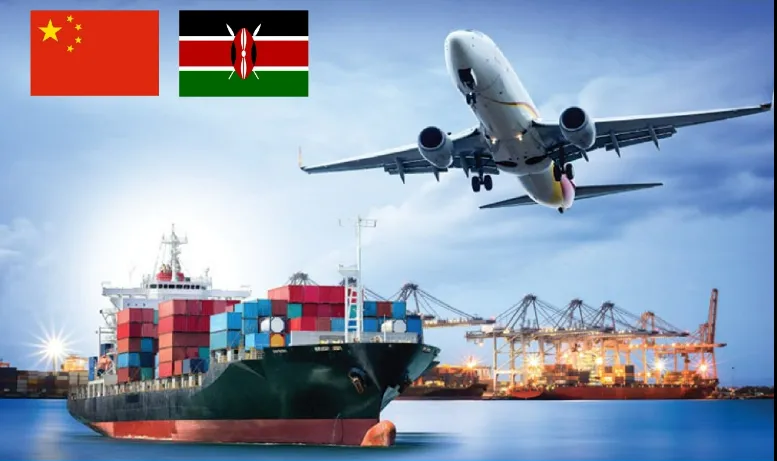
Understanding Shipping Options from China to Kenya
When considering importing goods from China to Kenya, it’s crucial to understand the available shipping options and how they align with your business needs. The two primary methods for shipping goods are air freight and sea freight, each offering distinct advantages and considerations.
Overview of Shipping Methods: Air vs. Sea Freight
Air Freight is known for its speed, making it ideal for urgent shipments. Goods can typically be transported from China to Kenya within a few days. However, this expedited service comes with higher costs. Air freight is suitable for high-value or perishable goods, where timing is critical.
Sea Freight, on the other hand, is a more economical option for bulk shipments. While it takes longer—often several weeks—shipping by sea is generally more cost-effective for larger volumes of goods. This method is commonly used for products that aren’t time-sensitive and allows for substantial savings, especially for large imports.
| Feature | Air Freight | Sea Freight |
|---|---|---|
| Speed | 1-5 days | 2-6 weeks |
| Cost | Higher | Lower |
| Ideal for | Urgent shipments, high-value goods | Bulk shipments, non-perishable items |
| Capacity | Limited (volume and weight restrictions apply) | Large capacity, suitable for containers |
Key Factors Influencing Shipping Costs
Shipping costs from China to Kenya can vary significantly based on several factors, including:
-
Weight and Volume: Heavier and larger shipments generally incur higher costs, especially with air freight, which often uses a volumetric weight pricing model.
-
Shipping Method: As previously discussed, air freight is more expensive than sea freight, influencing the overall logistics budget.
-
Distance and Route: The specific route taken can affect costs. Direct routes may be quicker but might not always offer the best rates.
-
Seasonality: Shipping costs can fluctuate depending on peak seasons, such as holidays or festivals, when demand increases.
-
Customs Duties and Taxes: Import duties, VAT, and other taxes imposed by Kenyan customs can significantly impact the total cost of shipping.
Understanding these factors will enable you to make informed decisions regarding which shipping option is best for your business.
Shipping Costs: A Detailed Breakdown
Cost assessment is vital for any business looking to import goods from China to Kenya. Below is a detailed breakdown of the average shipping costs associated with both air and sea freight.
Average Shipping Costs for Air Freight
Air freight costs can be influenced by several variables, including the weight of the shipment, the dimensions, the nature of the goods, and the urgency of the delivery. On average, air freight costs from China to Kenya can range from $5 to $12 per kilogram. For instance:
| Weight Range | Estimated Cost (Air Freight) |
|---|---|
| 0-100 kg | $5.00 – $8.00 per kg |
| 101-500 kg | $6.00 – $10.00 per kg |
| 501 kg and above | $7.00 – $12.00 per kg |
Average Shipping Costs for Sea Freight
For sea freight, costs are typically calculated per container, with options for 20-foot and 40-foot containers. The average costs can vary depending on the shipping company, season, and specific route taken. Below is a breakdown of costs for sea freight:
| Container Size | Estimated Cost (Sea Freight) |
|---|---|
| 20-foot container | $1,500 – $2,500 |
| 40-foot container | $3,000 – $4,500 |
| Less than Container Load (LCL) | $100 – $300 per cubic meter |
Hidden Fees and Additional Charges
When calculating shipping costs, it’s essential to account for potential hidden fees and additional charges that may arise during the shipping process. Commonly encountered fees include:
-
Customs Clearance Fees: These are charges associated with processing your goods through customs, which can vary based on the type of goods and their value.
-
Terminal Handling Charges: These charges may apply at the departure or arrival ports, covering the handling of containers and cargo during the shipping process.
-
Insurance Costs: Protecting your shipment against potential loss or damage can incur additional expenses. Insurance services can range from 1% to 3% of the cargo value.
-
Storage Fees: If your goods are not picked up from the port within a specified time frame, storage fees may apply.
-
Delivery Charges: Costs associated with transporting goods from the port to their final destination in Kenya, influenced by distance and transportation method.
To secure a seamless and cost-effective importing experience, partnering with a trusted freight forwarder like Dantful International Logistics can be invaluable. We offer a highly professional, cost-effective, and high-quality, one-stop international logistics service tailored to the needs of global traders.
Dantful International Logistics Services:
- Dantful Ocean Freight Services
- Air Freight From China
- Amazon FBA Freight Forwarding
- WAREHOUSE Services
- One-Stop Customs Clearance Solution
- Cargo Insurance Services in China
- DDP Shipping Services By Dantful Logistics
- Out of Gauge Cargo Transportation Shipping Services
Transit Times: What to Expect
Understanding transit times is crucial for any business importing goods from China to Kenya. It directly impacts inventory management, customer satisfaction, and overall business efficiency.
Average Transit Times for Air Freight
Air freight is the fastest shipping method, making it suitable for time-sensitive shipments. On average, transit times for air freight from China to Kenya typically range from 3 to 7 days. This time frame can vary based on factors such as the departure city in China, the availability of direct flights, and customs clearance processes in both countries.
Average Transit Times for Sea Freight
Sea freight, while more cost-effective for larger shipments, requires more time. Typical transit times from China to Kenya via sea freight are about 20 to 40 days. This duration can be influenced by the shipping route, port operations, and whether the shipment is using a Full Container Load (FCL) or Less than Container Load (LCL). For example:
| Shipping Method | Transit Time (Average) |
|---|---|
| Air Freight | 3 – 7 days |
| Sea Freight (FCL) | 20 – 40 days |
| Sea Freight (LCL) | 25 – 45 days |
Factors Affecting Shipping Speed
Several factors can influence the shipping speed when transporting goods from China to Kenya:
- Shipping Method: As previously discussed, air freight is significantly faster than sea freight.
- Route Efficiency: Direct routes may expedite transit times, while indirect routes may result in delays.
- Customs Clearance: Delays in customs can prolong shipping times, particularly if documentation is incomplete or if duties are under dispute.
- Port Congestion: Busy ports may experience delays, affecting overall transit times.
- Seasonal Variability: Peak shipping seasons, such as during holidays, can lead to increased logistics demand, resulting in slower transit times.
How to Choose the Right Shipping Company
Selecting the right shipping company is essential for ensuring smooth logistics operations. With numerous options available, businesses should consider various factors to make an informed choice.
Comparing Shipping Companies: Key Metrics to Evaluate
When comparing shipping companies, consider the following key metrics:
- Pricing Structure: Analyze the cost of shipping services based on your specific needs. This includes reviewing base costs, extra fees, and discounts for larger shipments.
- Transit Times: Compare average transit times for different shipping companies to ensure they align with your business requirements.
- Service Availability: Ensure that the company offers the specific services you need, such as door-to-door shipping, customs clearance, and insurance services.
- Tracking Capabilities: Look for companies that provide robust tracking systems for real-time visibility into your shipment’s progress.
The Role of Freight Forwarders in Cost Reduction
Freight forwarders can play a pivotal role in reducing shipping costs. They leverage their industry knowledge and relationships to negotiate better shipping rates and offer consolidated shipments, which can lower overall expenses. Additionally, freight forwarders provide value-added services such as documentation handling and customs clearance, streamlining the shipping process and minimizing delays.
Customer Reviews and Reputation: What to Look For
Examining customer reviews and the reputation of a shipping company can provide valuable insights into their reliability and service quality. Key factors to consider include:
- Customer Testimonials: Look for feedback from businesses similar to yours to gauge how well the shipping company meets expectations.
- Industry Awards and Recognition: Recognition from industry bodies may indicate a reputable and reliable shipping provider.
- Response Time: Evaluate how quickly the company responds to inquiries and resolves issues, as this reflects their commitment to customer service.
READ MORE:
- Shipping From China To Algeria
- Shipping From China To Angola
- Shipping From China To Morocco
- Shipping From China To Nigeria
- Shipping From China To Kenya
- Shipping From China To Tanzania
- Shipping From China To South Africa
Customs Regulations and Import Duties
Navigating customs regulations and understanding import duties is essential for successful importing from China to Kenya. Familiarizing yourself with these aspects can save your business time and money.
Understanding Customs Procedures in Kenya
When importing goods into Kenya, businesses must comply with local customs procedures. This involves:
- Documentation: Ensure all necessary documentation is prepared, including commercial invoices, packing lists, bills of lading, and any relevant certificates.
- Clearance Process: Goods must be cleared through customs, which involves inspection and verification of documents. It’s advisable to engage a customs broker to facilitate this process.
- Compliance with Regulations: Be aware of any specific regulations relevant to your goods, such as import permits or quality standards.
Common Import Duties and Taxes
When importing goods into Kenya, several duties and taxes may apply:
| Duty/Tax | Description |
|---|---|
| Import Duty | A tax based on the value of the imported goods, typically ranging from 0% to 25%. |
| Value Added Tax (VAT) | A tax of 16% applied to most goods. |
| Excise Duty | Applicable to specific products such as alcohol, tobacco, and petroleum products. |
Tips for Reducing Customs Charges
- Proper Classification: Ensure accurate classification of goods to avoid miscalculations in duties and taxes.
- Utilize Trade Agreements: Take advantage of trade agreements that may reduce tariffs on specific goods.
- Ensure Accurate Documentation: Proper documentation can expedite the customs clearance process and reduce the likelihood of additional charges.
Tips for Reducing Shipping Costs
Implementing effective strategies can significantly lower your shipping costs when importing from China to Kenya.
Strategies for Cost-Effective Shipping
- Consolidate Shipments: Combine multiple orders into a single shipment to reduce costs associated with shipping fees.
- Choose the Right Shipping Method: Assess the urgency of shipments and choose between air and sea freight accordingly. Prioritize air freight for high-value or urgent shipments, while opting for sea freight for bulk goods.
- Negotiate Rates: Don’t hesitate to negotiate shipping rates with providers, especially if you are a regular customer.
Using Freight Forwarders and Logistics Services
Employing a reputable freight forwarder like Dantful International Logistics can help streamline your shipping processes while minimizing costs. Freight forwarders offer comprehensive services, including customs clearance, warehouse services, and door-to-door shipping, which can enhance your shipping experience. By leveraging their expertise, you can focus on growing your business while enjoying efficient and cost-effective logistics solutions.
For businesses seeking reliable shipping options from China to Kenya, Dantful stands out as a highly professional, cost-effective, and high-quality one-stop international logistics service provider. Their experience and commitment to customer satisfaction can be invaluable as you navigate the complexities of international trade.

Young Chiu is a seasoned logistics expert with over 15 years of experience in international freight forwarding and supply chain management. As CEO of Dantful International Logistics, Young is dedicated to providing valuable insights and practical advice to businesses navigating the complexities of global shipping.
The other language versions of this article
- كيفية العثور على أرخص شركة شحن من الصين إلى كينيا
- Hoe vind je het goedkoopste transportbedrijf van China naar Kenia
- Comment trouver la compagnie de transport la moins chère de la Chine vers le Kenya
- So finden Sie das günstigste Transportunternehmen von China nach Kenia
- Come trovare la compagnia di spedizione più economica dalla Cina al Kenya
- Cómo encontrar la empresa de envío más barata de China a Kenia
- Como encontrar a empresa de transporte mais barata da China para o Quênia
- Как найти самую дешевую транспортную компанию из Китая в Кению
- Çin’den Kenya’ya En Ucuz Nakliye Şirketini Nasıl Bulunur



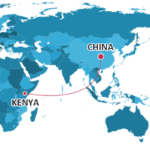
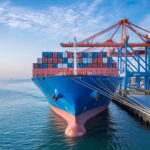



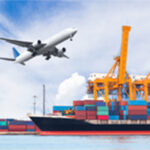






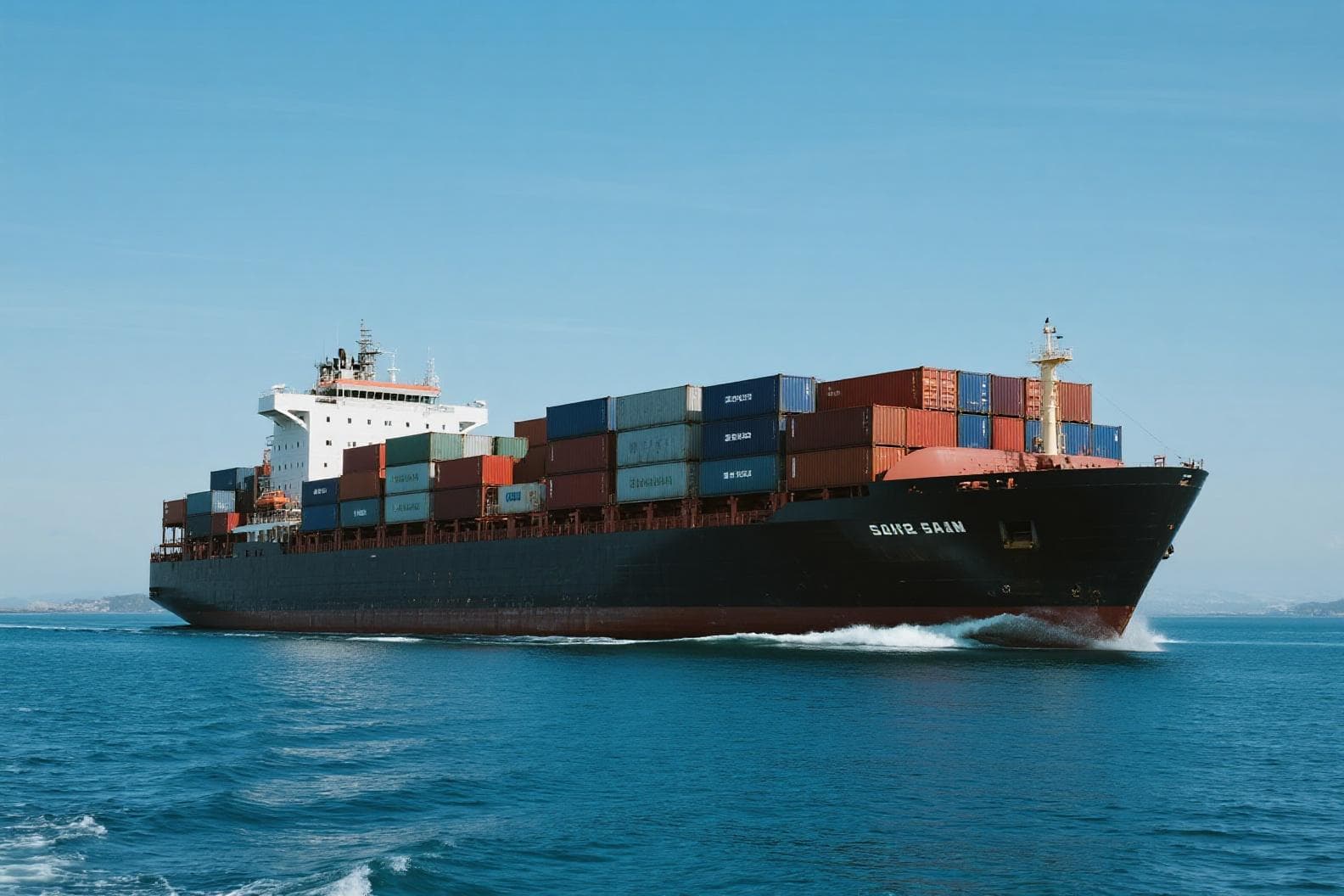





 Afrikaans
Afrikaans Shqip
Shqip አማርኛ
አማርኛ العربية
العربية Հայերեն
Հայերեն Azərbaycan dili
Azərbaycan dili Euskara
Euskara Беларуская мова
Беларуская мова বাংলা
বাংলা Bosanski
Bosanski Български
Български Català
Català Cebuano
Cebuano Chichewa
Chichewa 简体中文
简体中文 繁體中文
繁體中文 Corsu
Corsu Hrvatski
Hrvatski Čeština
Čeština Dansk
Dansk Nederlands
Nederlands English
English Esperanto
Esperanto Eesti
Eesti Filipino
Filipino Suomi
Suomi Français
Français Galego
Galego ქართული
ქართული Deutsch
Deutsch Ελληνικά
Ελληνικά Kreyol ayisyen
Kreyol ayisyen Harshen Hausa
Harshen Hausa Ōlelo Hawaiʻi
Ōlelo Hawaiʻi עִבְרִית
עִבְרִית हिन्दी
हिन्दी Hmong
Hmong Magyar
Magyar Íslenska
Íslenska Igbo
Igbo Bahasa Indonesia
Bahasa Indonesia Gaeilge
Gaeilge Italiano
Italiano 日本語
日本語 Basa Jawa
Basa Jawa ಕನ್ನಡ
ಕನ್ನಡ Қазақ тілі
Қазақ тілі ភាសាខ្មែរ
ភាសាខ្មែរ 한국어
한국어 كوردی
كوردی Кыргызча
Кыргызча ພາສາລາວ
ພາສາລາວ Latin
Latin Latviešu valoda
Latviešu valoda Lietuvių kalba
Lietuvių kalba Lëtzebuergesch
Lëtzebuergesch Македонски јазик
Македонски јазик Malagasy
Malagasy Bahasa Melayu
Bahasa Melayu മലയാളം
മലയാളം Maltese
Maltese Te Reo Māori
Te Reo Māori मराठी
मराठी Монгол
Монгол ဗမာစာ
ဗမာစာ नेपाली
नेपाली Norsk bokmål
Norsk bokmål پښتو
پښتو فارسی
فارسی Polski
Polski Português
Português ਪੰਜਾਬੀ
ਪੰਜਾਬੀ Română
Română Русский
Русский Samoan
Samoan Gàidhlig
Gàidhlig Српски језик
Српски језик Sesotho
Sesotho Shona
Shona سنڌي
سنڌي සිංහල
සිංහල Slovenčina
Slovenčina Slovenščina
Slovenščina Afsoomaali
Afsoomaali Español
Español Basa Sunda
Basa Sunda Kiswahili
Kiswahili Svenska
Svenska Тоҷикӣ
Тоҷикӣ தமிழ்
தமிழ் తెలుగు
తెలుగు ไทย
ไทย Türkçe
Türkçe Українська
Українська اردو
اردو O‘zbekcha
O‘zbekcha Tiếng Việt
Tiếng Việt Cymraeg
Cymraeg יידיש
יידיש Yorùbá
Yorùbá Zulu
Zulu